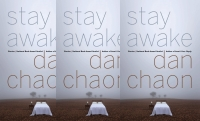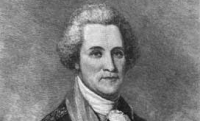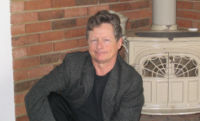Featured Writer
1. Water, water everywhere. . . these poems are filled with images of rivers, streams, oceans. Can you talk about what’s behind that imagery? What prompts it?
When I stand next to water, it feels like a great blanket of neutrality that somehow negates whatever stress or tension I happen to be feeling. Although various bodies of water feel different — rivers have too much movement for total relaxation, oceans have a very alive and vital presence, lakes feel calm, and nothing beats Lake Superior for its ability to soothe the tangle of thoughts in my head. Bodies of water have a strong spiritual aspect for me, and being next to water, or on the water, has a restorative aspect that speaks to both my body and mind.
2. Your poems vary in form, but there are 2 in sections. What is there about a poem that lets you know it needs to be divided like that? Is there a kind of conversation over the section breaks? Do the parts of the poem speak to and through each other?
I usually write shorter poems, and I wanted to try writing something longer, but I found the only way I could do it was to write short poems that felt related and then put them together in one larger poem using sections. I think the sections are variations on a theme, for instance, in Mississippi, the sections are different thoughts or moments about the river, but overall, they are all talking about the forward flow of time. I think the section breaks are indicators that we’re going to go in a slightly different direction – we’re still on the same road, but there’s a curve coming up.
3. Your “I” is very subtle in these poems, sometimes taking the form of the “you”. They feel deeply emotional, yet the speaker is sometimes almost invisible. What do you think about the “personal” in poems? Are you conscious of having a theory about it?
I do consciously take the “I” out of my poems, often I write my first drafts as “I”, then change them later. I think writers are always trying to try to find a balance between writing about personal experience, and then finding a way for the reader to enter or appreciate that experience. Each poem has to find the best way to do this, and sometimes it means it’s just fine that the whole poem is an “I” poem, and sometimes it means the “I” is taken right out of it. I do think that even with the “I” gone, the poet’s presence is always there in the voice and tone of the writing.
4. Where do your ideas for poems come from? Do you rely on experience, yours or others’?
I’m always thinking in questions – what does this mean, this first cold breeze to blow across the river, why do I love the quality of the air today, what does it mean that I’m floating in the ocean thousands of miles from home. The poems often start with these kinds of questions, and then the poem itself is about trying to puzzle out the answers. For instance, I was ironing the other day (a rare occasion!) and thinking about mundane tasks and idly questioning their place in our lives, and then later on, I sat down and wrote a poem that began with ironing and moved on to consider the importance of all the tasks that come around again and again in life, some comforting, some heartbreaking. So mostly the poems come from questioning personal experiences and trying to figure out how, or in what way, they might be important. However, I’m also a huge history buff, and I’ve always wanted to write poems about historical figures from Tudor and Stuart England, so maybe I’ll give that a try at some point!
5) What teachers or writers have influenced you the most?
Deborah Keenan who teaches at Hamline University in St. Paul is a phenomenal writing teacher who has been hugely influential in my poetry life. Writers like Linda Pastan, Raymond Carver, and Lucille Clifton are poets I’m naturally drawn to, I think because my writing voice instinctively wants to go in similar directions . Lately, I’ve consciously tried to read poets who have very different voices from my own, like Dobby Gibson and Rae Armantrout, and I think it has pushed me in new directions, and encouraged me to try new things, for instance, writing the section poems.
–
Kirsten Dierking is the Featured Poet for Emprise 17. For more information on Kirsten, you can visit her website.
Interviewed by Tracy Youngblom







